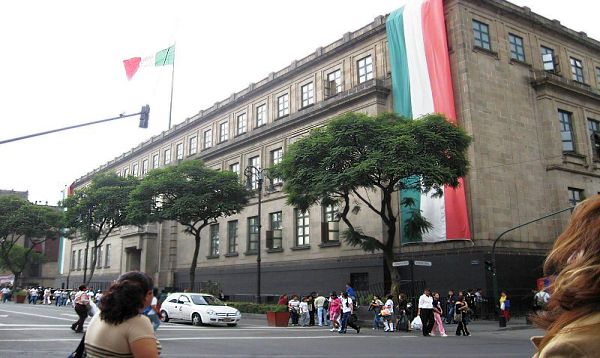On Wednesday, June 25th, the Mexican Supreme Court ruled a law that bans same-sex marriage in the state of Baja California is unconstitutional.
The decision came in the case of a gay couple who brought a legal challenge — known as an "amparo" in Mexico — after officials in the city of Mexicali denied their request for a marriage license.
"The exclusion of marriage to same-sex partners goes against the self-determination of people and each individual’s right to freely develop their personality," declared a press release announcing the court’s decision. "In addition, it implicitly generates a violation of the principle of equality, because it gives differential treatment to same-sex couples with respect to heterosexual couples."
The court also concluded that the "reproductive function or perpetuation of the species" and "the formation of a family is not, in any way, the purpose of marriage."
"Each person will determine what they will do as part of the free development of their personality, whether that is through the institution of marriage — heterosexual or not — or of another type of union," it states.
The Baja California decision is the latest in a series of rulings from the Mexican Supreme Court in support of marriage rights for same-sex couples.
The tribunal in April ruled in favor of 39 people who challenged the constitutionality of a Oaxacan law that bans gay nuptials. The Mexican Supreme Court in 2012 ruled in favor of three same-sex couples who separately sought legal recourse that would allow them to marry in the state.
Gays and lesbians have been able to marry in Mexico City since 2010 — and those unions are legally recognized throughout the country. Same-sex couples also have the right to exchange vows in Jalisco, Chihuahua, Colima, Quintana Roo and other Mexican states.
The Mexican Supreme Court in January ruled the same-sex spouses of those who receive benefits under the country’s social security system must receive the same benefits as their heterosexual counterparts.
A gay Mexican couple whose request to tie the knot was denied last month filed a formal complaint with the Inter-American Commission on Human Rights in Washington, D.C.
Same-sex couples are able to legally marry in Canada, Brazil, Argentina, Uruguay, 20 US states and Washington, D.C., French Guiana, Martinique, Guadeloupe, and the Dutch island of Saba along with Mexico City.
The 10th US Circuit Court of Appeals last month struck down Utah’s same-sex marriage ban. On the same day, a federal judge ruled Indiana’s gay nuptials prohibition unconstitutional.
The "Movement for Homosexual Integration and Liberation," a Chilean LGBT advocacy group, has filed a lawsuit with the Inter-American Court of Human Rights on behalf of three gay couples are seeking marriage rights in the country.
"The Americas are in the vanguard of marriage equality: the majority of same-sex couples in the hemisphere live where they can get married, or if married elsewhere can have their marital rights recognized,” Hunter T. Carter, a New York-based lawyer who advocates for marriage rights for same-sex couples in Latin America, said. "But many still cannot because their leaders still practice a pure discrimination that is unsustainable under international human rights law and constitutional principles of the equal protection of the laws.”
Original Story


